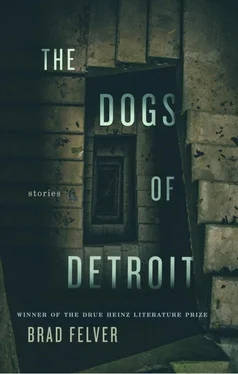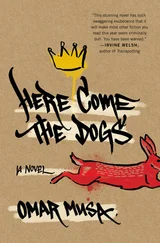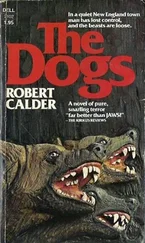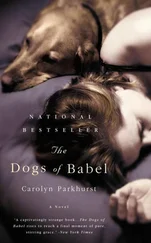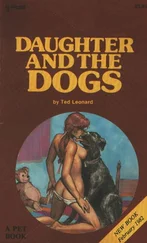“That it takes far too long,” Gus said. “Centuries for them to dissipate.”
“You, too?” Ruth asked, and Gus touched her arm, telling her yes. She froze, his hand warm on her skin, afraid that the smallest movement might dislodge them.
After a few moments, they noticed they were blocking the sidewalk and had to move on. “So, Queen Elizabeth isn’t actually in us,” Ruth said and paused. “Never will be.”
“No,” Gus said, “but she’ll end up in someone eventually.”
They started walking again. He dug his hands into his pockets and gazed around. She felt a sadness in him that had never been there. A hollow look in his eyes. Whether it was all the talk of death or long-term loneliness or just the general cruelties of life, she couldn’t know. The truth was they had been apart far longer than they’d been together. Could she even claim to know him anymore?
They ended up at an outdoor cafe, drinking tea. Ruth warmed her hands on her mug and sipped slowly. Gus noticed that the table wobbled on the uneven bricks, and so he shimmed one leg with a folded napkin. They both felt uneasy, wishing they’d gone to a bar instead, where it becomes easier for old lovers to ignore how well they know each other’s bodies.
“I can’t believe no one else snatched you up,” she said.
“Well,” he said, “I doubt I made it very easy.” He looked away, his eyes training to all the commotion on the street. “When Queen Elizabeth died, it was strange at first not having a tree there, like a pulled tooth when all you can do is trace the gap with your tongue.” He set his tea down. “Then I found myself sweating all the time. It took me over a year to realize that the house itself retained that much more heat with the tree gone. No more shade.” He paused and for a moment seemed ready to weep, but then he coughed and looked away.
“I know what you mean,” Ruth said. “It felt so strange when I moved back to Boston, like I didn’t actually grow up here.” She didn’t tell him how for years she would think about him in the middle of the day, how some silly little thing would happen and she would make a mental note to tell him when she got home, only to remember hours later that she couldn’t.
They went back to their tea, their own thoughts. It hurt Ruth to see the many ways Gus was still the same man, how her absence had not changed that, but it also hurt to see the many ways he was now different, to know that she’d had no hand in shaping his new quirks. He still palmed his mug rather than using the handle, but he took smaller sips now, probably because he moved slower. He was older, but he was also successful, could accomplish fewer things each day. He probably appreciated success in ways that she never would.
“It’s strange seeing me, isn’t it?” she asked. “I can tell it’s strange for you.”
He squinted at her for a long time, and she began to worry that he would never respond. She was thinking of that terrible note she had left him, though she wasn’t certain if he’d even seen it. Finally, he said, “Not strange, no.” But then he stopped talking and grimaced. “It’s like having phantom limb syndrome. I feel you over there, and I know you belong over here, but you’re there and I’m here and there’s no changing that.”
A warmth crept into her limbs, like muscles being stretched. She had forgotten how his words could puncture straight through to her core. All these years separated hadn’t changed him in the important ways. She cried then. It was a dirty, messy sort of cry, not at all dignified. All the grief of her life seemed to surface: a loveless mother and father, an unfulfilling career, dead children, dead relationships. She couldn’t look at Gus. He didn’t reach for her or offer a tissue, just let her have it out as privately as possible.
“I just worked,” he said, hoping to give her more time to recover herself. “Eventually, I could go five minutes without thinking about her, and that was a revelation. I learned how to function without pressuring myself to find joy in anything. But five minutes is as long as I ever got. Never more than that, not even now.”
She already knew that Gus was the only one she could ever talk to about Annabelle, but she realized then it wasn’t that simple. It was all they would ever be capable of talking about. But she also realized that it was the only thing she wanted to talk about, and that would be true for the rest of her life.
When she’d composed herself, she said, “It’s hard to know that you’ve used up all the good parts of your life so early.”
She wanted him to disagree but he nodded. “Thank God we’re still young,” he said, perhaps as a joke, but perhaps not.
They didn’t speak for several minutes after that, and neither of them had any intention to. It was the silence of age, if not of wisdom, and also the silence of those who have weathered the worst long before and now have little fear of the world’s residual cruelties. Occasionally their eyes met and lingered, but they managed only to grin at each other as if they shared some private secret that they would never try to articulate, not even to each other. Eventually, the waiter approached and silently placed the check between them—perhaps he saw that neither of them wore a wedding ring and wanted to be proper—and there it would stay, each of them ignoring it, hoping they might sit together just a few moments longer.
We were mean kids. We knew it and we celebrated it. We salted slugs in the street and watched them melt. We caught brook trout and plucked out their eyes with a corkscrew, leaving their wriggling bodies for the bears. We slathered each other’s sandwiches with gear grease when no one was looking. When we got hurt or punished, we took it as a sign that we were doing something right, that we were being mean enough. But Charley was always searching for new cruelties. Even his mother was afraid of him, which meant he mostly did as he pleased.
Charley was an angry kid, not overly large but ferocious. He had no interest in anyone our age or their television and video games. When he bothered to go to school at all everyone shied away from him because he smelled like diesel fuel or gunpowder or carcass. He sneered at teachers. He inspired awe even from the most seasoned kids because he would disappear for days at a time, trudging through the unkempt cemetery that bordered our backyard and into the dense woods, and just when rumors started to circulate that he was gone for good, he emerged with crusted blood on his arms and face and never bothered to tell anyone where he’d been or how he killed whatever he killed.
This was Cut Bank, northern Montana, grizzly country, where goofy tourists wore bells on their belts and carried bear spray that claimed to be napalm in a can and was sold at every corner gas station. It was a fine product if you encountered a black bear, but they were basically pets anyway. Trailhead signs even advised hikers to punch them right in the nose, and they would run away, which they did. Grizzlies, though, were part dinosaur, remnants of an earth where animals the size of Volkswagens stomped around and ate goddamned whatever they wanted. Your only hope with a grizzly, the saying went, was to punch its stomach walls enough that it might digest you faster. Even the traps poachers left in the hills looked like medieval torture devices, enough rusted toothy steel to keep a Gulf Stream tethered to the ground. Every couple years, it seemed some determined suburbanite wandered into the wild looking to prove something to his kids or wife or mistress. Within a few days, Charley and I would see the vultures circling high above his heading, swooping around in their cockeyed figure-eight formation, and then a couple days later, we’d read in the newspaper what we already knew.
Читать дальше
